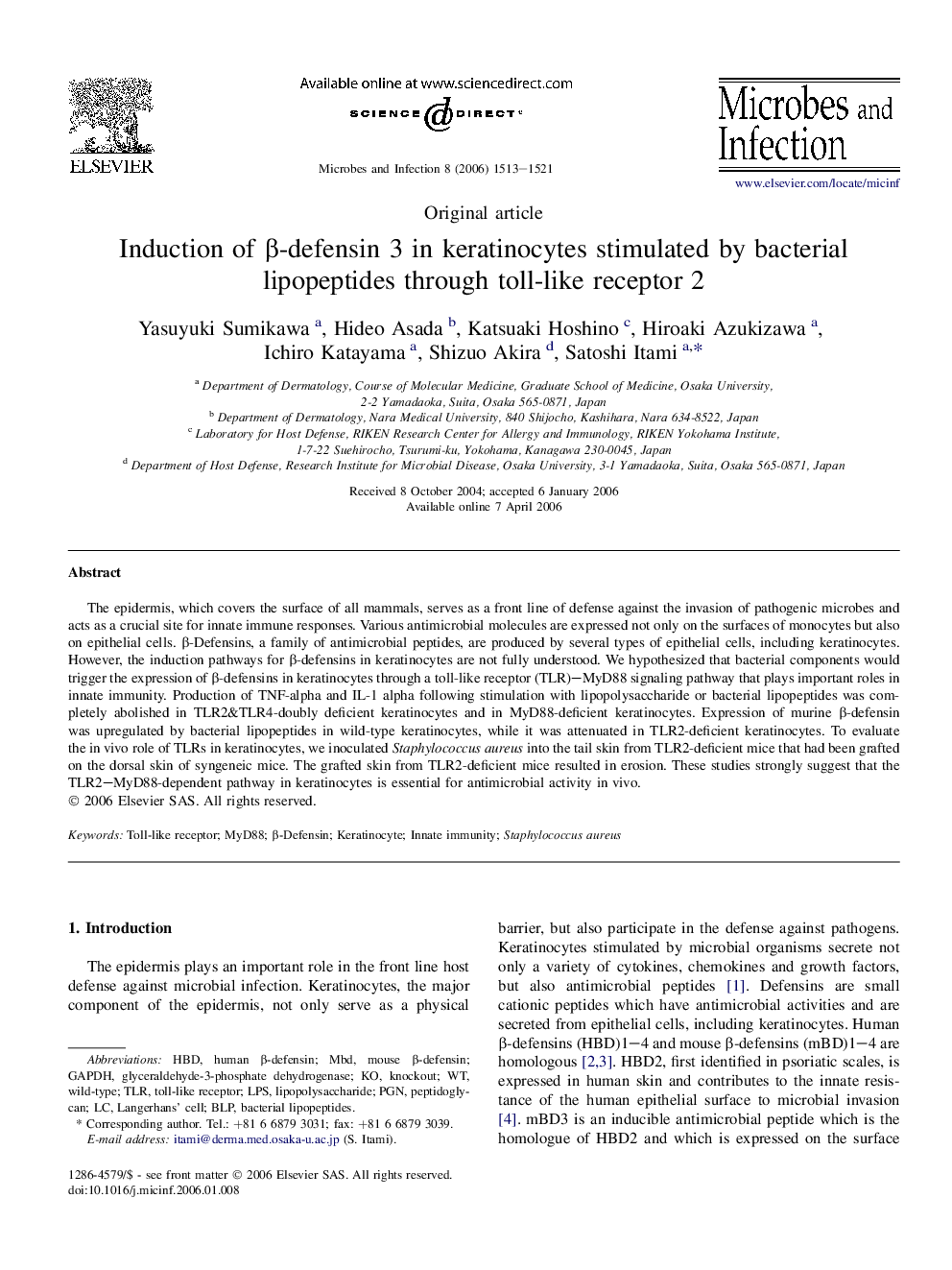| Article ID | Journal | Published Year | Pages | File Type |
|---|---|---|---|---|
| 3416041 | Microbes and Infection | 2006 | 9 Pages |
The epidermis, which covers the surface of all mammals, serves as a front line of defense against the invasion of pathogenic microbes and acts as a crucial site for innate immune responses. Various antimicrobial molecules are expressed not only on the surfaces of monocytes but also on epithelial cells. β-Defensins, a family of antimicrobial peptides, are produced by several types of epithelial cells, including keratinocytes. However, the induction pathways for β-defensins in keratinocytes are not fully understood. We hypothesized that bacterial components would trigger the expression of β-defensins in keratinocytes through a toll-like receptor (TLR)–MyD88 signaling pathway that plays important roles in innate immunity. Production of TNF-alpha and IL-1 alpha following stimulation with lipopolysaccharide or bacterial lipopeptides was completely abolished in TLR2&TLR4-doubly deficient keratinocytes and in MyD88-deficient keratinocytes. Expression of murine β-defensin was upregulated by bacterial lipopeptides in wild-type keratinocytes, while it was attenuated in TLR2-deficient keratinocytes. To evaluate the in vivo role of TLRs in keratinocytes, we inoculated Staphylococcus aureus into the tail skin from TLR2-deficient mice that had been grafted on the dorsal skin of syngeneic mice. The grafted skin from TLR2-deficient mice resulted in erosion. These studies strongly suggest that the TLR2–MyD88-dependent pathway in keratinocytes is essential for antimicrobial activity in vivo.
